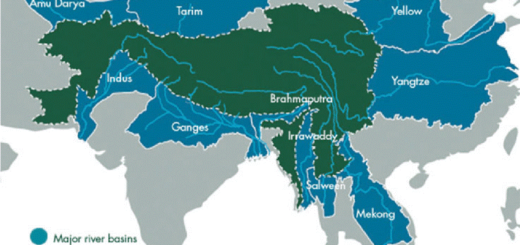National Current Affairs – UPSC/IAS Exams- 23rd November 2019
Topic: Polity and Governance
In News: The 50th annual Conference of Governors began at the Rashtrapati Bhawan in New Delhi. It was organized for the first time in the year of 1949.
More on the Topic:
- This Conference provides an opportunity for Governors and Lt. Governors to exchange views and learn from each other’s experiences as well as to adopt international best practices best suited to each state and union territory’s distinct and diverse needs and requirements.
About Governors Roles:
- Reservation of a bill for the consideration of the President: Situations are mentioned in Article 200, when Governor will reserve the bill, yet he can use, discretion regarding this matter.
- Recommendation for the imposition of the President’s Rule in the state: The Governors Committee (1971) laid down the responsibility on the governor to see that the administration of the State does not breakdown due to political instability and he must send a regular report about the political situation of the State.
- In such circumstances, if the Governor reports to the President a breakdown of the constitutional machinery in the State, it is clearly in accordance with his discretionary power. However, as we can see above, such powers have led to conflicts from time to time.
- Situational discretion:
- These are hidden discretion derived from the exigencies of a prevailing political situation:
- Appointment of chief minister when no party has a clear-cut majority in the state legislative assembly or when the chief minister in office dies suddenly and there is no obvious successor.
- Dismissal of the council of ministers when it cannot prove the confidence of the state legislative assembly.
- Dissolution of the state legislative assembly if the council of ministers has lost its majority
- The Governor summons prorogues and dissolves the Legislative Assembly, according to article 174. When the ministry loses the majority and if the Governor is satisfied, s/he may dissolve the House.
- Governor may or may not be advised by the ministry to dissolve the Assembly. In this case also, the Governor is fully entitled to act according to his discretion, in the interest of the state concerned thereby leading to conflicts.
Conflicts and Concerns:
- The union government controls the affairs of the states with the Governor who is appointed by them and reports directly to the President.
- There are instances of abusing the discretionary powers while selecting the parties to form government will break the democratic set up as government is formed by parties who did not have majority support of people.
- Either way, to stay true to the spirit of the Constitution, the Governor should desist from conferring discretionary powers to his office where there are none.
- The people will lose faith in the office of Governor who in most cases acts like an agent of the union government and not as an independent office.
Recommendations of SC Judgements and Committees To avoid conflicts:
- Governor has an important constitutional role to play in the governance of the state and in strengthening federalism.
- Deletion of articles: The Rajamannar Committee (1971) recommended the deletion of Articles 356 and 357 from the constitution of India and also emphasised that the governor of the state should not consider himself as an agent of the centre but play his role as the constitutional head of the State.
- Rare use of articles: The Sarkaria Commission (1988) recommended that Article 356 should be used in very rare cases when it becomes unavoidable to restore the breakdown of constitutional machinery in the State.
- The commission recommended that before taking action under Article 356, a warning should be issued to the state government that it is not functioning according to the constitution.
- Last way to articles: Justice V. Chelliah Commission (2002) recommended that Article 356 must be used sparingly and only as a remedy of the last resort after exhausting all actions under Articles 256, 257 and 355.
- Amendment in the articles: The Punchhi commission recommended that Articles 355 & 356 be amended. It sought to protect the interests of the States by trying to curb their misuse by the Centre.
- Supreme Court gave many judgements regarding the discretionary powers of Governors like the Nabam Rebia judgment (2016) which emphasized that the exercise of Governor’s discretion Article 163 is limited and his choice of action should not be arbitrary or fanciful. It must be a choice dictated by reason, actuated by good faith and tempered by caution.
- Judgement on the President’s Rule: The Administrative Reforms Commission (1968) recommended that the report of the governor regarding the president’s rule has to be objective and also the governor should exercise his own judgment in this regard.
Source: PIB
Topic: Infrastructure Development
In News: During the 17th Meeting of Maritime states Development Council (MSDC) the apex advisory body for the development of the maritime sector government announced a plan to develop a National Grid for Ports.
More on the Topic:
- Out of the 204 minor ports in the country, only 44 are functional; the National Grid for Ports (NGP) will connect the major and minor ports.
- Ports have been centres of India’s maritime activity in the past; the objective is to once again revive ports as important centres of sea trade.
- The objective is also to improve infrastructure and to reduce and finally eliminate human interface.
- Ministry of shipping is planning a wider expansion of port capacity across the country.
- The study on NGP will be different than ‘Sagarmala’ study.
Plans under NGP:
- The plan will be carried through cooperation between the Centre and State.
- Port capacity will be expanded by implementing well-conceived infrastructure development projects.
- A host of measures will be undertaken to cut time and cost, digitization of processes, and to strongly address environment-related concerns.
- Specific cargo linked to the ports and the downstream industry will be identified for the revival of each port.
- Over 100 minor ports in India could be renewed and integrated with major ports in a new system.
- All States will implement a set of common rules to ease movement of barges across the coastal route.
- States will be free to develop it themselves or through public-private partnership ports.
Significance of NGP:
- The coastal shipping and inland waterways has the potential to play a vital role in the development of the country.
- The cost-effective and pollution-free water transport will reduce logistics costs in the country, making Indian goods more competitive in the global markets.
- NGP will increase the efficiency of port operations.
- Developing connectivity between the major and minor ports can bring port-led development into the country.
- A NGP will ensure that cargo or agricultural produce located near the non-major ports can be shipped to major ports.
Source: PIB
Intensified Mission Indradhanush
Topic: Government Policies/ Health
In News: The Intensified Mission Indradhanush (IMI) 2.0 is to be rolled out on 272 districts of 27 states and 652 blocks of Uttar Pradesh and Bihar among hard-to-reach and tribal populations.
More on the Topic:
- It is supported by several ministries, including the Ministry of Women and Child Development, Panchayati Raj, Ministry of Urban Development, Ministry of Youth Affairs, among others, to ensure the benefits of vaccines.
- The program aims to escalate efforts to achieve the goal of attaining 90% national immunization coverage across India.
- Intensified Mission Indradhanush (IMI) was launched from Vadnagar in 2017 and its second version (2.0) 2.0 is going to be launched from Dec 2, 2019.
- Through IMI, Government aims to reach each and every child upto 2 years of age and all those pregnant women who have been left uncovered under the routine immunisation programme/Universal Immunisation Programme (UIP).
- It consists of 4 rounds of immunization that will be conducted in the selected districts and urban cities between Dec 2019 – March 2020.
The UIP basket has vaccines for ten diseases i.e
- BCG for TB, OPV for poliomyelitis
- monovalent measles vaccine for measles
- Rota Virus vaccine for Diarrhoea
- JEV for Japanese Encephalitis &
- Pentavalent Vaccine for DPT (diphtheria, pertussis i.e whooping cough & tetanus)
- Vaccine for Hepatitis B & Pneumonia due to Hib.
- Measles-rubella vaccine (MR) is also added now to the UIP
Background:
- Mission Indradhanush was launched in 2014 to achieve full immunisation coverage for all children and pregnant women at a rapid pace.
Source: PIB
Smart Safety Surveillance Programme
Topic: Government Initiatives
In News: The central government is planning to expand the reach of the Smart Safety Surveillance, or 3S, programme.
More on the Topic:
- The 3S project was recommended by the World Health Organization (WHO), considering the limited safety data on vaccines introduced in India.
- As part of the 3S project, India is evaluating the recently-introduced rotavirus vaccines.
- It is also trying to strengthen the collaboration among key stakeholders, such as ministry of health and Central Drugs Standard Control Organisation (CDSCO), to ensure high levels of vigilance.
- According to the ministry of health and family welfare, new medical products often enter the market with limited safety data from clinical trials, which evaluate small controlled populations.
- Therefore, for immunization programmes, post-marketing safety surveillance is essential to monitor the risk-benefit profile of a product in the wider population.
- WHO has been prodding countries to adopt the 3S programme, with the support of the Bill and Melinda Gates Foundation, to strengthen pharmacovigilance systems in developing nations.
Source: Indian Express
Topic: Government Scheme
In News: The Assam government has announced the launch of ‘Arundhati Swarna Yojana’.
More on the Topic:
- Under the scheme, the state government will offer 10 grams of gold as a gift to every adult bride who has completed at least 10th standard and has registered her marriage.
- The government will not give the gold directly but Rs. 30,000 to purchase 10 gms of gold.
- Minimum age should be 18 years and 21 years for the bride and bridegroom respectively.
- The family has to register their marriage under the Special Marriage (Assam) Rules, 1954.
- Minimum educational qualification criteria have been relaxed for the tribes and workers of tea gardens.
- The eligible bride and bridegroom must apply for the scheme before the date of their wedding.
Source: PIB
Labour Code on Industrial Relations 2019
Topic: Economy
In News: The Union cabinet has approved the Labour Code on Industrial Relations 2019. The code will combine Industrial Disputes Act, 1947, the Trade Unions Act, 1926, and the Industrial Employment (Standing Orders) Act, 1946.
More on the Topic:
- The bill quotes that workers can be hired seasonally for six months or a year but it ensures that all workers will be treated at par with regular workers for benefits.
- The industrial relations code is the third out of four labour codes that have got approval from the cabinet. The Labour Code on Wages has already been approved by Parliament in August while the Labour Code on Occupational Safety, Health and Working Conditions has been referred to the standing committee of labour.
Key Provisions of the bill:
- The bill seeks to allow companies to hire workers on fixed-term contract of any duration.
- The code has retained the threshold on the worker count at 100 for prior government approval before retrenchment, but it has a provision for changing ‘such number of employees’ through notification.
- It also provides setting up of a two-member tribunal (in place of one member) wherein important cases will be adjudicated jointly and the rest by a single member, resulting speedier disposal of cases.
- It has vested powers with the government officers for adjudication of disputes involving penalty as fines.
Source: PIB
















